离心机原位改性无机填料方法初探毕业论文
2020-04-21 17:03:42
摘 要
目前导热高分子复合材料主要是采用加入导热的无机填料如氮化硼、氮化硅和Al2O3等,然后与不同高分子基体复合而成。此外,导体粒子和高分子材料复合制备的聚合物基导热高分子材料,如C材料、金属粉末填充的高分子导热材料,适用于低绝缘或非绝缘导热场合。当能够导热的高分子材料应用于电子元器件、电机等设备的封装和电气绝缘及散热时,具有普通聚合物4-10倍的热导率。
本课题以EVA为高分子基体,将无机填料BN经硅烷偶联剂Si-69改性处理后,填充至基体中形成良好的导热通道,提高基体的导热性能。拟通过离心机提供的离心力和高剪切力实现硅烷偶联剂和无机填料BN的快速混合,以及对填料表面的有机改性。然后,将改性后的无机填料与高分子基体共混,干燥。然后使用平板硫化机进行压片。通过红外光谱仪,热流计导热率侧试仪,扫描电子显微镜对样品进行分析,最后得出以下结论:
在乙烯-醋酸乙烯共聚物(EVA)中添加改性后得到无机填料BN的确可以提高EVA树脂的导热性能。但是,由于测试存在误差、制样表面有空隙、表面不平整等因素的影响,同时由于实验所得的对照组数量过少,使用硅烷偶联剂(Si-69)对BN改性能否比不使用硅烷偶联剂改性所得的EVA复合材料导热率更高这一点无法确定。后期使用十六烷基三甲氧基硅烷对使用Si-69改性的BN二次改性,得到的样品导热率比只使用Si-69改性的制品导热率低。
关键词:硅烷偶联剂(Si-69) 无机填料导热率 乙烯-醋酸乙烯共聚物 BN
Preliminary study on in-situ modification of inorganic fillers for centrifuges
Abstract
Thermal conductive polymer composites are mainly composed of inorganic fillers such as boron nitride, silicon nitride and Al2O3, which are added with thermal conductivity, and then compounded with different polymer matrices. In addition, polymer-based thermal conductive polymer materials, such as C material and metal powder filled thermal conductive polymer materials, prepared by the composite of conducting particles and polymer materials, are suitable for low insulation or non-insulation thermal conductive occasions. When thermal conductive polymers are used in the packaging of electronic components, motors and other equipment, electrical insulation and heat dissipation, the thermal conductivity of ordinary polymers is 4-10 times.
In this paper, EVA was used as the polymer matrix, BN was modified by silane coupling agent Si-69, and then filled into the matrix to form a good thermal conductivity channel, so as to improve the thermal conductivity of the matrix. The rapid mixing of silane coupling agent and inorganic filler BN, as well as the organic modification of the filler surface, will be realized through centrifugal force and high shear force provided by the centrifuge. Then, the modified inorganic filler was blended with the polymer matrix and dried. Then use the flat vulcanizer to press the tablets. The samples were analyzed by infrared spectroscopy, thermal conductivity side tester and scanning electron microscopy. Finally, the following conclusions were drawn:
The thermal conductivity of ethylene-vinyl acetate copolymer (EVA) can be improved by adding inorganic filler BN.
However, it is uncertain whether the thermal conductivity of BN modified by silane coupling agent (Si-69) is higher than that of EVA composites modified by silane coupling agent because of the influence of test error, surface voids and surface irregularity, and the small number of control groups. The thermal conductivity of BN modified by Si-69 was lower than that of BN modified by Si-69 only.
Key words: Silane Coupling Agent (Si-69); Thermal conductivity of inorganic fillers; Ethylene-vinyl acetate copolymer; BN
目 录
摘 要 I
Abstract II
绪论 1
1.1 聚合物基导热复合材料 1
1.1.1 复合材料 1
1.1.2 聚合物基导热复合材料 1
1.1.3 导热机理 1
1.2 EVA 2
1.3 硅烷偶联剂 2
1.3.1 硅烷偶联剂的概述 2
1.3.2 使用方法 3
1.4 十六烷基三甲氧基硅烷 4
第二章 实验部分 5
2.1 实验所用的原料 5
2.2实验仪器设备 5
2.3 试样的制备 6
2. 4 表征性能测试 9
2.4.1 红外光谱测试 9
2.4.2 热导率 9
2.4.3 SEM 10
第三章 实验结果及数据分析 11
3.1 热导率测试结果 11
3.2 扫描电镜观察结果 12
3.3 红外光谱分析 12
第四章 结论与展望 15
4.1 结论 15
4.2 展望 15
参考文献 16
致谢 18
第一章 绪论
1.1 聚合物基导热复合材料
1.1.1 复合材料
复合材料是指由两种或两种以上不同物质以不同方式组合而成的材料,它可以发挥各种材料的优点,克服单一材料的缺陷,扩大材料的应用范围。[1]由于复合材料具有重量轻、强度高、加工成型方便、弹性优良、耐化学腐蚀和耐候性好等特点,已逐步取代木材及金属合金,广泛应用于航空航天、汽车、电子电气、建筑、健身器材等领域,在近几年更是得到了飞速发展。[1]
一般定义的复合材料需满足以下条件:首先复合材料必须是人造的,而且是人们根据社会需要设计制造的材料,然后复合材料必须由两种或两种以上化学、物理性质不同的材料组分,以所设计的形式、比例、分布组合而成,各组分之间有明显的界面存在,它具有结构可设计性,可进行复合结构设计,复合材料不仅保持各组分材料性能的优点,而且通过各组分性能的互补和关联可以获得单一组成材料所不能达到的综合性能。[1]
相关图片展示:
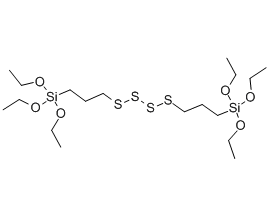
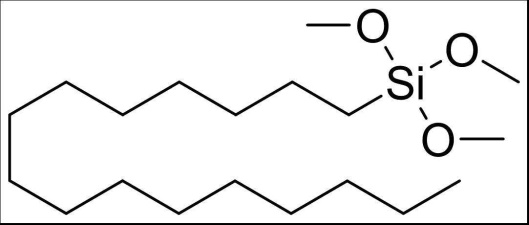
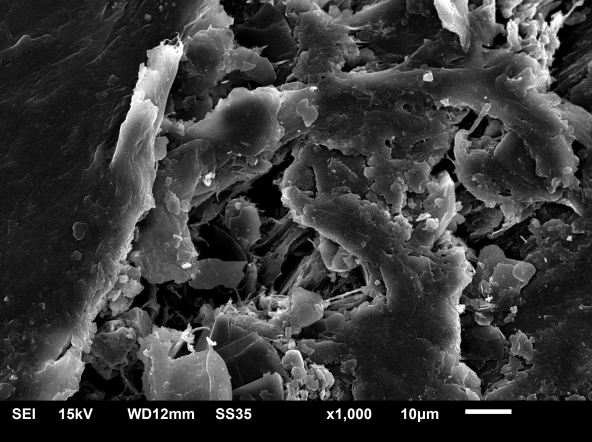
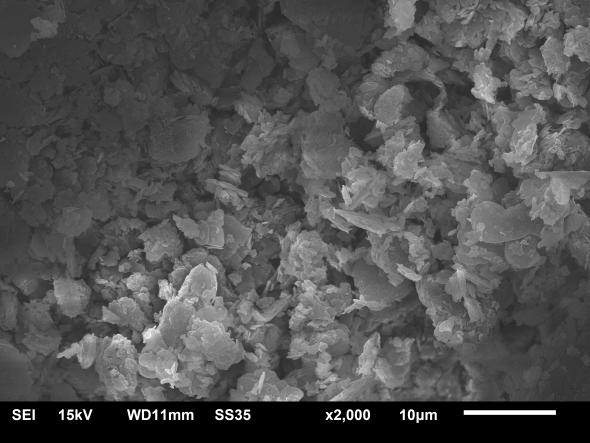
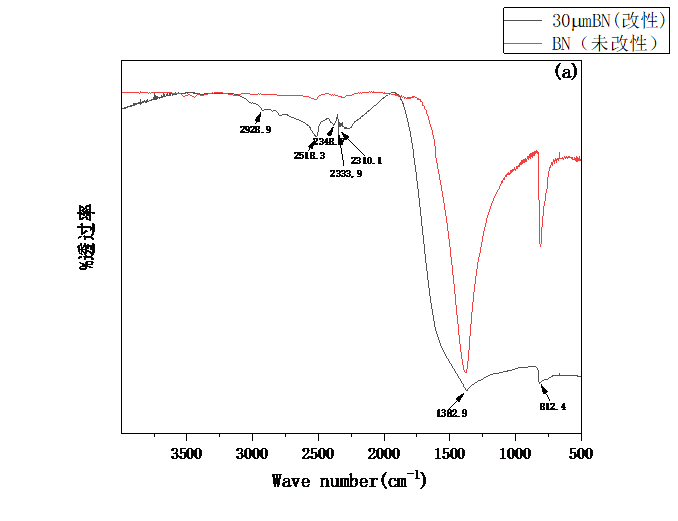
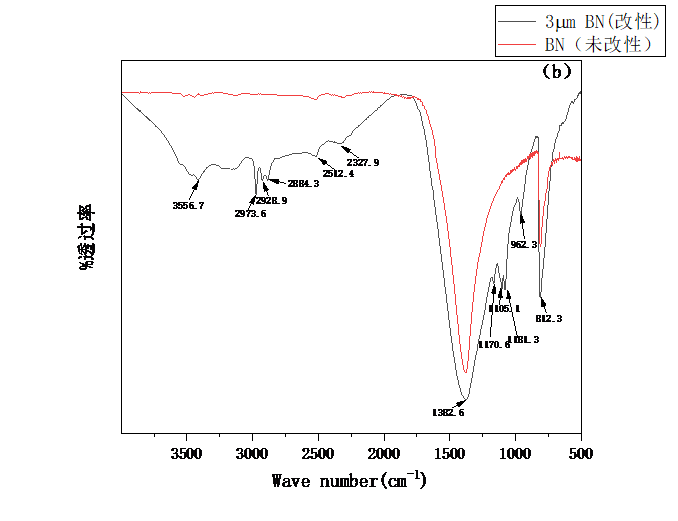
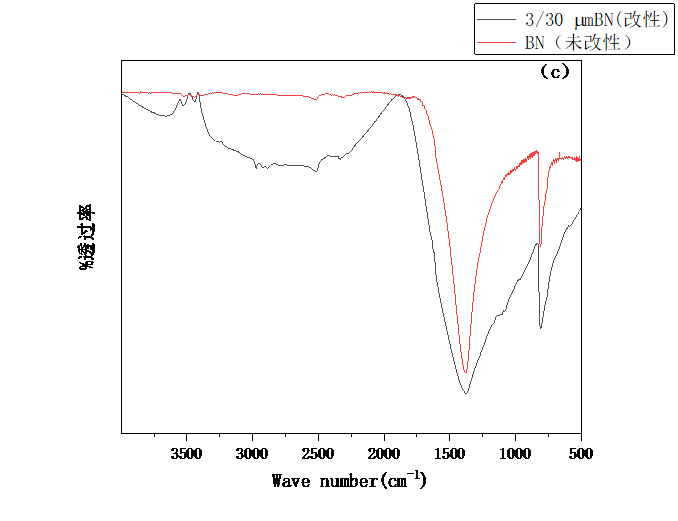
您可能感兴趣的文章
- 在200至300℃的温度下纤维素的水热降解外文翻译资料
- 对O-酰基肟光敏交联剂和丙烯酸丁酯组成的压敏胶一系列光聚合与光降解过程的直接流变学测量外文翻译资料
- 热和紫外线诱导的环氧/环氧丙烯酸酯胶粘剂的制备及其性能外文翻译资料
- 基于光敏可逆固液转换的可调光聚合物胶粘剂外文翻译资料
- 氢氧化物-催化键中近红外吸收的时间演化外文翻译资料
- 利用糖辅助机械力化学剥离技术一步法制备功能化氮化硼纳米片外文翻译资料
- 用于热管理的具有优异力学性能和超高热导率的兼容多功能氮化硼纳米片/聚合物薄膜外文翻译资料
- 油水分离材料用凹土棒复合微球的制备与表征油水分离材料用凹土棒复合微球的制备与表征外文翻译资料
- 单轴拉伸聚乙烯/氮化硼纳米复合薄膜金属状热导率外文翻译资料
- 高导热硅弹性体掺杂石墨烯纳米片和低共熔液体金属合金外文翻译资料




